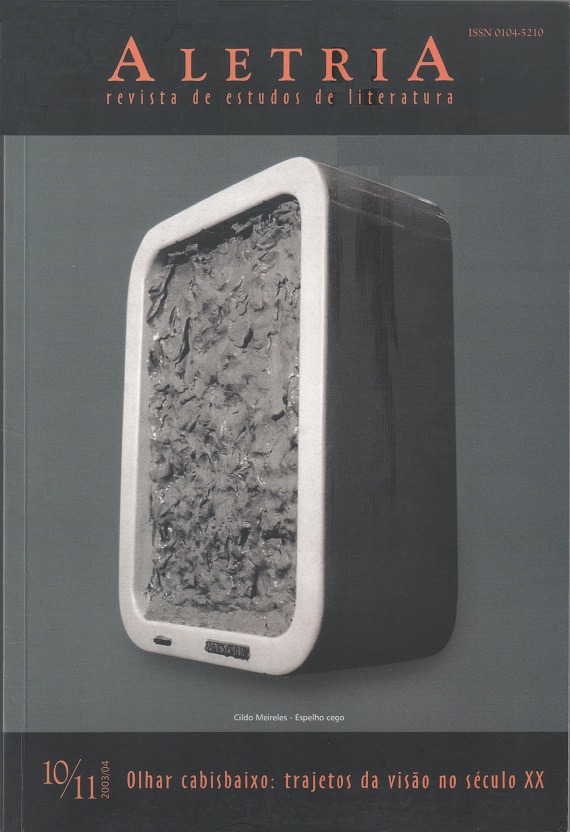Globalization of culture and values: myth or reality?
DOI:
https://doi.org/10.17851/2317-2096.10..160-172Palabras clave:
culturalismo, estudos culturais, globalização, culturalism, Cultural Studies, globalization.Resumen
Resumo: No discurso da globalização, deve-se ter o cuidado de não simplificar a complexidade nem fazer uso de termos totalizadores, essencialistas e absolutizantes. Os valores culturais tornam-se uma arma aterrorizante se sua ambiguidade é ignorada, se a cultura se torna culturalismo sem considerar que os valores sempre foram, em qualquer momento da história, construções da cultura e, portanto, sujeitos a reconstruções: um processo que testemunhamos agora sob o impacto de uma globalização economicamente dominada.
Palavras-chave: culturalismo; estudos culturais; globalização.
Abstract: In the discourse of globalization one should take great care not to simplify complexity, not to make use of totalistic, essentialistic, and absolutizing terms. Cultural values become a terrifying weapon if their ambiguity is ignored, if culture becomes culturalism without considering that values have always been, at any point in history, constructions of culture and therefore prone to re-constructions: a process we presently are witness to under the impact of economically dominated globalization.
Keywords: culturalism; Cultural Studies; globalization.
Descargas
Citas
ANDERSON, Benedict. Imagined Communities. Reflections on the Origin and Spread of Nationalism. London; New York: Verso, 1983.
APPADURAI, Arjun. Modernity at Large. Cultural Dimensions of Globalization. Minneapolis; London: University of Minnesota Press, 1996.
BHABHA, Homi. The Location of Culture. London; New York: Routledge, 1994.
BECK, Ulrich; GIDDENS, Anthony; LASH, Scott (ed.). Reflexive Modernization. Politics, Tradition and Aesthetics in the Modem Social Order. Cambridge: MIT Press, 1994.
CRAPANZANO, Vincent. Serving the Word. Literalism from the Pulpit to the Bench. New York: The New Press, 2000.
DOUZINAS, Costas. The End of Human Rights: Critical Legal Thought at the Tum of the Century. Oxford: Hart Publishing, 2000.
FABIAN, Johannes. Time and the Other. How Anthropology Makes its Objects. New York: Columbia University Press, 1983.
HUNTINGTON, Samuel. The Clash of Civilizations and the Remaking of World Order. New York: Simon & Schuster, 1996.
LOCK, Margaret; YOUNG, Allan; CAMBROSIO, Alberto (ed.). Living and Working with the New Medical Technologies. Intersections of Inquiry. Cambridge: MIT Press, 2000.
SASSEN, Saskia. Losing Control? Sovereignty in an Age of Globalization. New York: Columbia University Press, 1996.
SENNETT, Richard. The Corrosion of Character: The Personal Consequences of Work in the New Capitalism. New York: Norton, 1998.
VASAVI, A. R. Agrarian Distress in Bidar. NIAS Report. Bangalore: National Institute of Advanced Studies, 1999.
WILLIAMS, Raymond. Culture. London: Fontana Press, 1981.
Descargas
Publicado
Cómo citar
Número
Sección
Licencia
Derechos de autor 2003 Klaus Scherpe (Autor)

Esta obra está bajo una licencia internacional Creative Commons Atribución 4.0.
Authors who publish with this journal agree to the following terms:Authors retain copyright and grant the journal right of first publication with the work simultaneously licensed under a Creative Commons Attribution Non-Commercial No Derivatives License that allows others to share the work with an acknowledgement of the work's authorship and initial publication in this journal.Authors are able to enter into separate, additional contractual arrangements for the non-exclusive distribution of the journal's published version of the work (e.g., post it to an institutional repository or publish it in a book), with an acknowledgement of its initial publication in this journal.Authors are permitted and encouraged to post their work online (e.g., in institutional repositories or on their website) prior to and during the submission process, as it can lead to productive exchanges, as well as earlier and greater citation of published work (See The Effect of Open Access).





